تحقیق دوبین
The Dubin Inquiry
The Dubin Inquiry was a Canadian federal government inquiry into the state of amateur sport in Canada, more specifically into the use of performance-enhancing drugs by Canadian athletes. The inquiry followed in the footsteps of Canadian sprinter Ben Johnson’s disqualification in the 1988 Seoul Olympics. The inquiry was named after Charles Dubin, a Canadian judge who presided over the proceedings.
Johnson won the Olympic men’s 100-metre final in a world record time of 9.79 seconds. However, his post-race mandatory drug test was positive. Johnson was found to have taken the steroid Stanozolol. The subsequent stripping of Johnson’s gold medal turned into probably the most famous case of drug use in the history of sports. It also sent shock waves rippling through the Canadian sports establishment, with various members of government and the sport bureaucracy pointing fingers at each other.
Many observers of the sports establishment around the world followed the Dubin Inquiry and the Johnson case. Several countries were dealing with the growing problem of their own athletes using drugs to enhance performance, so the results of the inquiry were eagerly anticipated. The inquiry heard testimony from a large number of athletes, coaches, sports administrators, and others. The most interesting submissions were made by Johnson’s coach Charlie Francis, his physician Jamie Astaphan, and of course from Johnson himself. The inquiry disclosed drug taking on a scale never before suspected. It was discovered that, besides the common practice of coaches encouraging athletes to take drugs, many others were guilty of turning a ‘blind eye’ to the problem and ignoring it.
In the aftermath of the inquiry, a new organization, The Canadian Centre for Drug-Free Sport, was created to combat the problem. This organization has taken various measures in its attempt to combat drug use by Canadian athletes. However, critics of the Dubin Inquiry have accused the inquiry of being little more than a government inquisition, the real purpose of which was to direct attention towards individual athletes and coaches and away from the government itself.
Increasingly in the 1980s, Sport Canada-the governing body responsible for the administration of elite amateur sport in Canada-had taken a “success-oriented” approach to Canadian sport: emphasizing winning medals above all other goals. The result, critics have pointed out, was to put immense pressure on Canadian athletes, leading in turn to drug use–among many other extreme measures–to enhance performance. The Dubin Inquiry, in other words, has had mixed reviews.
A further indication of the effectiveness of the Dubin Inquiry can be seen in the state of Canadian sport since the inquiry. Despite attempts by The Canadian Centre for Drug-Free Sport to educate athletes and coaches on the dangers of drug use, there is little doubt that rampant drug use continues. This has led some observers of the Canadian sport scene to claim that drug use is less a reflection of individual athletes who cheat, but more a reflection of a cultural and institutional epidemic in sport. Drug use has perhaps become so common in the culture of elite sport that dealing with the problem by punishing individual athletes might be ineffective.
Inquiry

an official process to find out about something
inquiry into
a judicial inquiry into the deaths
launch/set up/hold an inquiry (into something)
The Civil Aviation Authority has agreed to hold an inquiry into the accident.
The police have launched a murder inquiry .
Parents have called for an independent inquiry into the accident.
—
performance-enhancing
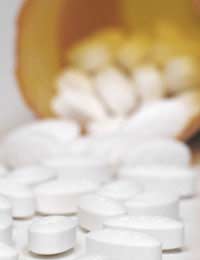
performance-enhancing drug/product/supplement etc
a drug or product that is used illegally by people competing in sports events to improve their performance
—
followed in the footsteps of
sprinter

someone who runs in fast races over short distances
disqualification

to stop someone from taking part in an activity because they have broken a rule
ᅳsynonym ban
disqualify somebody from (doing) something
He was disqualified from driving .
ᅳdisqualification
automatic disqualification
—
name somebody/something after somebody/something
(=give someone or something the same name as another person or thing) He was named after his father.The street is named after the famous South African leader, Nelson Mandela.
—
preside
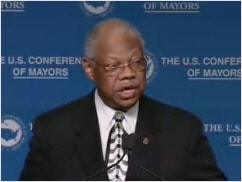
preside over something phrasal verb
to be in a position of authority at a time when important things are happening
The government seemed to be presiding over large-scale unemployment.
—
post
—
mandatory
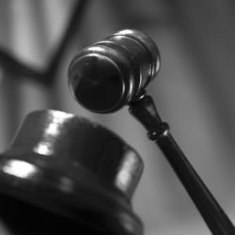
if something is mandatory, the law says it must be done
ᅳsynonym compulsory, obligatory
ᅳsee also discretionary
It’s mandatory to pay the debt within six months.
a mandatory election.
Voting is not mandatory.
a mandatory waiting period of six months
mandatory for
Crash helmets are mandatory for motorcyclists.
Murder carries a mandatory life sentence .
The Council has made it mandatory for all nurses to attend a refresher course every three years.
—
subsequent
happening or coming after something else
ᅳsee also consequent
These skills were passed on to subsequent generations.
subsequent pages of the book
We made plans for a visit, but subsequent difficulties with the car prevented it.
subsequent to something
events that happened subsequent to the accident
The events I’m speaking of were subsequent to (=after) the war.
—
ripple
to pass from one person to another like a wave
ripple through
Panic rippled through Hollywood as the murders were discovered.
—
establishment

formal an organization or institution, especially a business, shop etc
a top class training establishment
—
bureaucracy

the officials who are employed rather than elected to do the work of a government, business etc
—
anticipate

to expect that something will happen and be ready for it
Sales are better than anticipated.
anticipate changes/developments
The schedule isn’t final, but we don’t anticipate many changes.
anticipate problems/difficulties
We don’t anticipate any problems.
A good speaker is able to anticipate an audience’s needs and concerns.
anticipate (that)
This year, we anticipate that our expenses will be 15% greater.
It is anticipated that the research will have many different practical applications.
anticipate doing something
I didn’t anticipate having to do the cooking myself!
—
testimony

a formal statement saying that something is true, especially one a witness makes in a court of law
Barker’s testimony is crucial to the prosecution’s case.
In his testimony, he denied that the company had ignored safety procedures.
—
disclose

to make something publicly known, especially after it has been kept secret
ᅳsynonym reveal
Some companies have already voluntarily disclosed similar information.
He refused to disclose the identity of the politician.
disclose that
It was disclosed that £3.5 million was needed to modernize the building.
he refused to disclose where they were hiding
their names and addresses were not disclosed
The judge asked the reporters not to disclose the name of the murder victim.
She disclosed that she had been in prison.
—
on a scale
—
turn a blind eye (to something)

to deliberately ignore something that you know should not be happening
Teachers were turning a blind eye to smoking in school.
—
aftermath
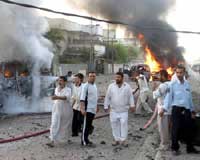
the period of time after something such as a war, storm, or accident when people are still dealing with the results
aftermath of
the danger of disease in the aftermath of the earthquake
—
combat
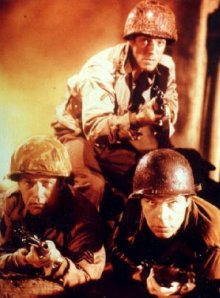
to try to stop something bad from happening or getting worse – used especially in news reports
combat inflation/crime/racism etc
In order to combat inflation, the government imposed strict controls on foreign currency.
new strategies for combatting terrorism
The police are now using computers to help combat crime.
new government strategies to combat inflation/drug abuse.
—
rampant
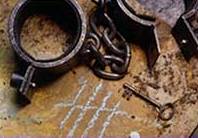
of crime, disease, wrong beliefs, etc.) widespread and impossible to control:
Sickness was rampant in the area.
rampant lawlessness
a rampant crime wave
rumors ran rampant that he was resigning
Pickpocketing is rampant in the downtown area.
The country has high unemployment and rampant inflation .
—